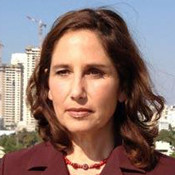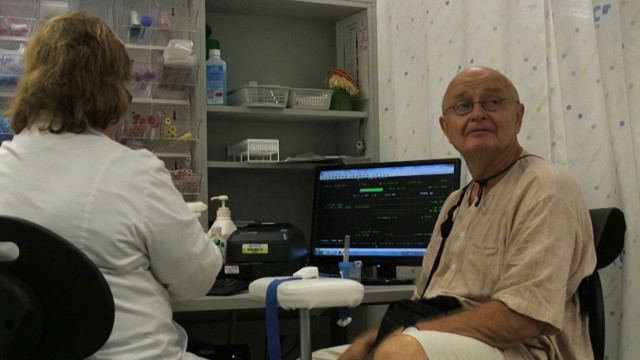If you were at risk for a life threatening disease, like cancer, you’d want to know as early as possible so you could treat and hopefully eradicate the disease. New technology coming out of Israel may help.
For patients, it’s as easy as taking a routine blood test.
CGTN’s Stephanie Freid in Tel Aviv has more.
If you catch colorectal cancer in its early stages, there’s a 90 percent survival rate. Catch it later, though, and that rate drops significantly. The challenge for healthcare providers faced with delivering quality care while cutting costs is screening the people who don’t come in for recommended testing.
“What we’re saying is: Let’s look at the population that is not participating in what they are recommended to participate,” Ori Geva, CEO of EarlySign explained.
Patients who come in for routine blood work are automatically screened for their probability of developing certain chronic diseases. It’s artificial intelligence technology, based on financial market algorithm predictors, developed by this Israeli team of data scientists, physicians, geneticists, statisticians and mathematicians
Medial EarlySign’s primary focus: preventative care & nabbing cancer, diabetes and gastrointestinal diseases before they develop. Founders said the technology is cost-effective and two times better at detecting potential problems than conventional methods.
“We’ve done models both with health economists and potential customers and we see that for the high burden diseases, every dollar spent upstream could save a lot of money downstream,” Geva said.
Professor Varda Shalev of Tel Aviv’s Maccabi Research and Innovation Institute adds, “For the patient it’s to live or to die, which is a lot more important than money. Because if you diagnose colon cancer early, you forgot that you did it. You take this polyp out and that’s it. But if you diagnose it late, somebody’s going to die here. We don’t know how to treat it.”
EarlySign technology is currently being applied in Israel and Poland – Agreements with U.S. and European healthcare providers are under negotiation.
 CGTN America
CGTN America

